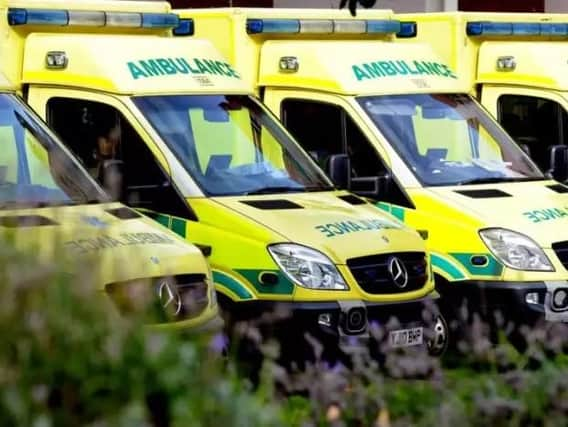The 35 medicines no longer available on NHS prescription from this month


NHS England is hoping to free up almost £100 million for frontline care each year by bringing in the changes.
The NHS will no longer be funding medicines such as cold treatments, paracetamol, probiotics, cough mixture, eye drops and laxatives.
Advertisement
Hide AdAdvertisement
Hide AdHowever, the rule changes will not affect the prescribing of over the counter items for 'longer term or more complex conditions', NHS officials have confirmed.
NHS England has said that curbing these routine prescriptions for minor conditions, many of which will cure themselves, will free up vital funds.
The NHS announced the move at the end of the March and the new guidance to GPs across the country will start from May 31.
NHS England chief executive Simon Stevens said: “Across the NHS our aim is to: ‘Think like a patient, act like a taxpayer’.
Advertisement
Hide AdAdvertisement
Hide Ad"The NHS is probably the most efficient health service in the world, but we’re determined to keep pushing further.
"Every pound we save from cutting waste is another pound we can then invest in better A&E care, new cancer treatments and much better mental health services.”
The NHS has said that some of the products can be purchased over the counter at a lower cost than that which would be incurred by the NHS.
The new guidance will curb the routine prescribing of products for self limiting conditions that do not require any medical advice or treatment.
Advertisement
Hide AdAdvertisement
Hide AdThese conditions, including sore throats, coughs and cold, will clear up on their own.
It will also apply to conditions that are suitable for self care which can be treated with items that can easily be purchased over the counter, such as indigestion, mouth ulcers and warts and verrucae.
NHS England has said that the guidance will not apply to people with long-term or more complex conditions who will continue to get their usual prescriptions.
However, people who receive free prescriptions will not automatically be exempt from the guidance.
Advertisement
Hide AdAdvertisement
Hide AdOnce CCGs have adopted the new guidance locally, it will apply to everyone who is not covered by the general or condition-specific exceptions listed in the guidance document.
These are the conditions affected by NHS prescription crackdown
• Acute sore throat
• Infrequent cold sores of the lip
• Conjunctivitis
• Coughs and colds and nasal congestion
• Cradle Cap (seborrhoeic dermatitis – infants)
• Haemorrhoids
• Infant colic
• Mild cystitis
• Mild irritant dermatitis
• Dandruff
• Diarrhoea (adults)
• Dry eyes/sore (tired) eyes
• Earwax
• Excessive sweating (Hyperhidrosis)
• Head lice
• Indigestion and heartburn
• Infrequent constipation
• Infrequent migraine
• Insect bites and sting
• Mild acne
• Mild dry skin
• Sunburn
• Sun protection
• Mild to moderate hay fever/seasonal rhinitis
• Minor burns and scalds
• Minor conditions associated with pain, discomfort and/fever. (e.g. aches and sprains, headache, period pain, back pain)
• Mouth ulcers
• Nappy rash
• Oral thrush
• Prevention of dental caries
• Ringworm/athletes foot
• Teething/mild toothache
• Threadworms
• Travel sickness
• Warts and verruca